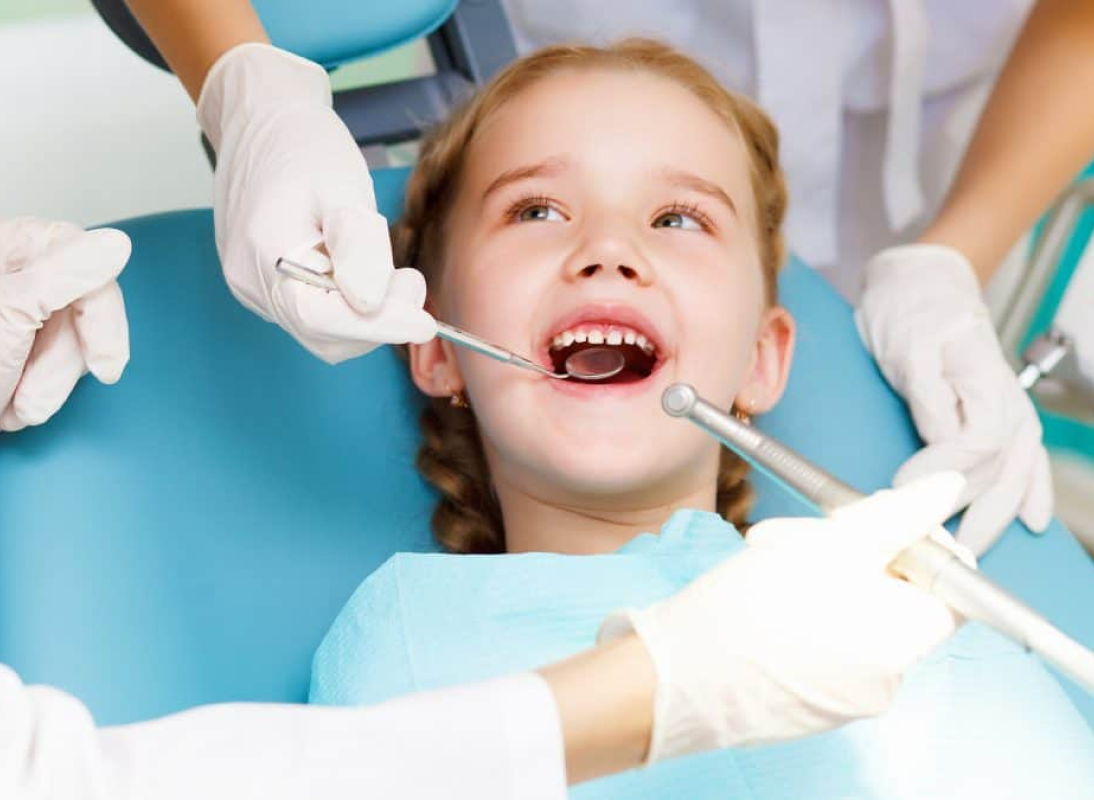Velachery
9am to 9pm
Velachery
Door No.9, Sai Karthika Flats, 1st Main Road, Vijayanagar Velachery, Ch - 48
+91 7358222200, +91 7338899900
Dr_roop@yahoo.com
OPENING HOURS
Monday - Saturday 9am-9pm
Velachery
9am to 9pm
Door No.9, Sai Karthika Flats, 1st Main Road, Vijayanagar Velachery, Ch - 48
+91 7358222200, +91 7338899900
Dr_roop@yahoo.com
Monday - Saturday 9am-9pm
Pediatric dentistry specializes in/takes care of the oral health of infant, children and adolescent. This dentistry also treats children with special needs, who are physically and mentally challenged. Pediatric dentistry involves additional study of 3 years (i.e. after 4 years of dental training).This branch of dentistry studies child growth, psychology and development. Such dentists take care of wide variety of dental problems of children e.g. cavity, tooth decay, malocclusion, emergency care, crooked teeth etc.
According to American Academy of Pediatric Dentistry the child should be brought to the dentist when he turns 1 year old .By that time the first teeth comes and the dentist can discuss ways of keeping oral hygiene. A dentist can guide the parents about diet, tooth eruption, finger habits, fluoride etc.
According to American Academy of Pediatric Dentistry the child should be brought twice a year to the dental clinic .The visits may vary if the child has tooth decay, bad oral hygiene, and unusual teeth growth.
Baby teeth are not permanent but they are very important. They help the child to crew food, smile properly and speak clearly. Baby teeth hold the space for permanent teeth. If child looses teeth at an early age because of decay/ damage the nearby teeth can encroach that free space which can result in misplaced/crooked permanent teeth.
For an infant a soft cloth should be used to clean his/her gums after every feed. Once the child has one tooth a soft tooth brush can be used.
Once the child develops a few teeth, tooth paste can be used. Tooth paste with fluoride is not recommended for children below 2 years because children have a habit of swallowing paste and taking in excess of fluoride can cause staining of teeth .Parents should brush the teeth of their children till the time they do that independently. Children should rinse their mouth thou rally after brushing.
There care bacteria present in the mouth, when they come in contact with sweet food left in the mouth, they form acids. These acids attack the enamel and create a hole in the teeth which results in severe pain. Children eat sweets, chocolates and do not clean their teeth properly which results in cavity formation.
Sealants are the best way to avoid cavities. They cover the fissures and pits in the teeth .Sealants are susceptible to decays and are very difficult to brush off. Sealants are very effective and safe for children teeth, especially molars.
The child should stop sucking thumb before the eruption of permanent teeth. If this habit continues there will be problems such as buckteeth/open bite.
Keeping good oral hygiene is a family effort. The children should know the importance of brushing (twice a day) and flossing daily. Moreover regular dental checkups are also necessary for good oral health.
Human infants are sometimes considered obligate nasal breathers, but generally speaking healthy humans may breathe through their nose, their mouth, or both. During rest, breathing through the nose is common for most individuals. Breathing through both nose and mouth during exercise is also normal, a behavioral adaptation to increase air intake and hence supply more oxygen to the muscles. Mouth breathing may be called abnormal when an individual breathes through the mouth even during rest
When a child’s permanent teeth come in, sucking can impede proper growth and it can adversely affect the alignment of the teeth. Thumbsucking also brings about changes in the roof of the mouth.

According to the American Dental Association, your kid should have their first dental checkup six months after their first tooth emerges, or by their first birthday
Checkups should be scheduled every six months, on average. We may prescribe more regular checkups depending on the conditions of your child's dental health.
Your child's initial teeth play a crucial part in development, even if they don't stay as long as permanent teeth. The primary teeth help your child talk, smile, and eat properly while they are in place. They also serve as a placeholder for permanent teeth in the jaw.
Maintaining a pleasant attitude is the greatest way to prepare for your child's first visit to our clinic. Children pick up on adults' fears, so if you make negative comments about dental visits, you can guarantee your child will expect a bad experience and behave accordingly.
Copyright © 2025. All Rights Reserved. Powered by FAUCONE